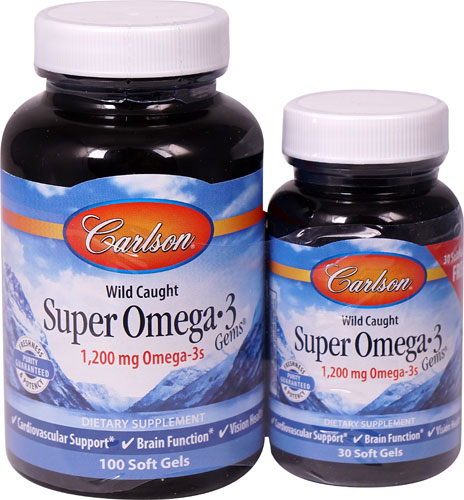Did you know that fats, carbohydrates, protein (and alcohol) are the only nutrients in our diet from which we derive energy? Fats contain over twice as many calories per gram as carbohydrates and protein; however some fats are required in our diet as our bodies do not manufacture them on their own. Dietary fats are classified by hydrogenation status, chain length, configuration or placement of double bonds in the fatty acid structure. Fats are oxidized to be used as fuel, help form plasma phospholipids, lipoproteins and cell membranes, and they can be stored as triglycerides.
Omega-3s
Omega-3 fatty acids are essential polyunsaturated fats with their first double bond three spots from the terminal end of the fatty acid structure. These fats are commonly referred to as oils because they are liquid at room temperature. Many studies on the potential health benefits of omega-3s have been conducted over the last several years. Research suggests that these fats may help support heart health (likely through supporting healthy heart function and efficiency, variability and inflammation status, as well as supporting healthy lipid numbers). Some other, more limiting research suggests omega-3 intake may help support mental and cognitive health.*
No fish? No problem!
The most widely available types of polyunsaturated fat found in the diet is alpha linolenic acid (ALA). It’s found in chia seeds, flax seeds, canola oil, soybean oil and walnuts. However, ALA must be converted to eicosapentaenoic acid (EPA) or docosapentaenoic acid (DHA) in order to be functional. Unfortunately, ALA has a poor conversion rate of about 5-15% to EPA and <1% to DHA; however vegetarians may see a slightly better rate of conversion. Thankfully, DHA and EPA is available from a plant source rather than seafood. You’ll find it in algal oil. Algal oil, or fat derived from marine algae, is the original source of omega-3s that most non-predatorial fish feed upon. Algal oil is available in supplement form, and it’s also added to some enriched foods.
What is recommended?
Healthy adults should have a diet comprised of 20-35% of calories from fat, with the majority of those being unsaturated fats rather than saturated or trans fats. The Academy of Nutrition & Dietetics (AND) and the US Dietary Reference Intakes (DRI) call for 0.6-1.2% of our total calories should be ALA, while we should get 500 mg (per the AND) or up to 10% total calories (per DRI) of a combination of EPA and DHA daily.
Always be sure to vary your diet and include a generous amount of fruits, vegetables, nuts, seeds, grains, legumes (and their unsaturated fats) for good nutrition.
*These statements have not been evaluated by the FDA. These products are not intended to diagnose, treat, cure or prevent any disease.





